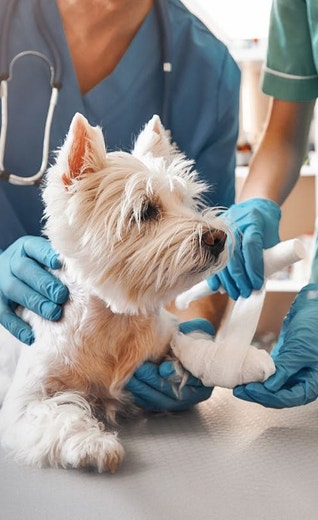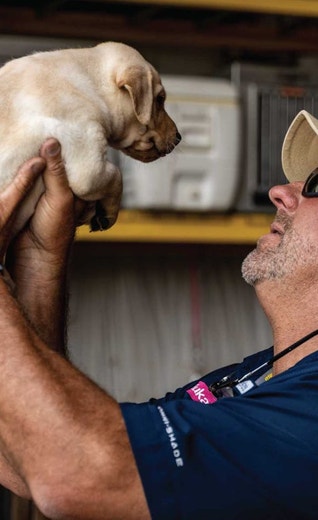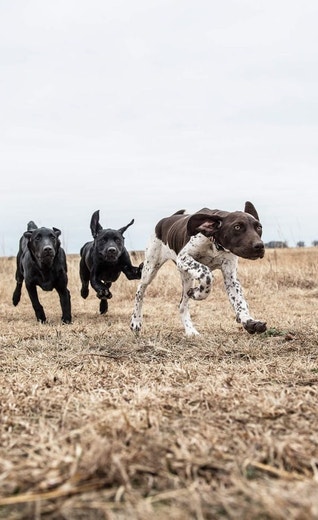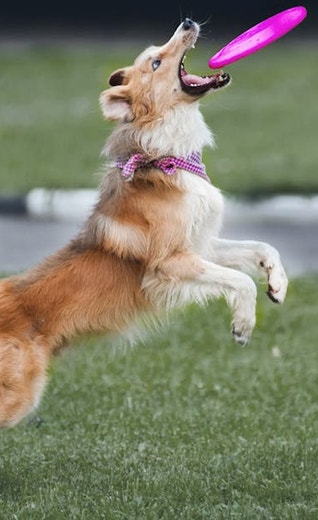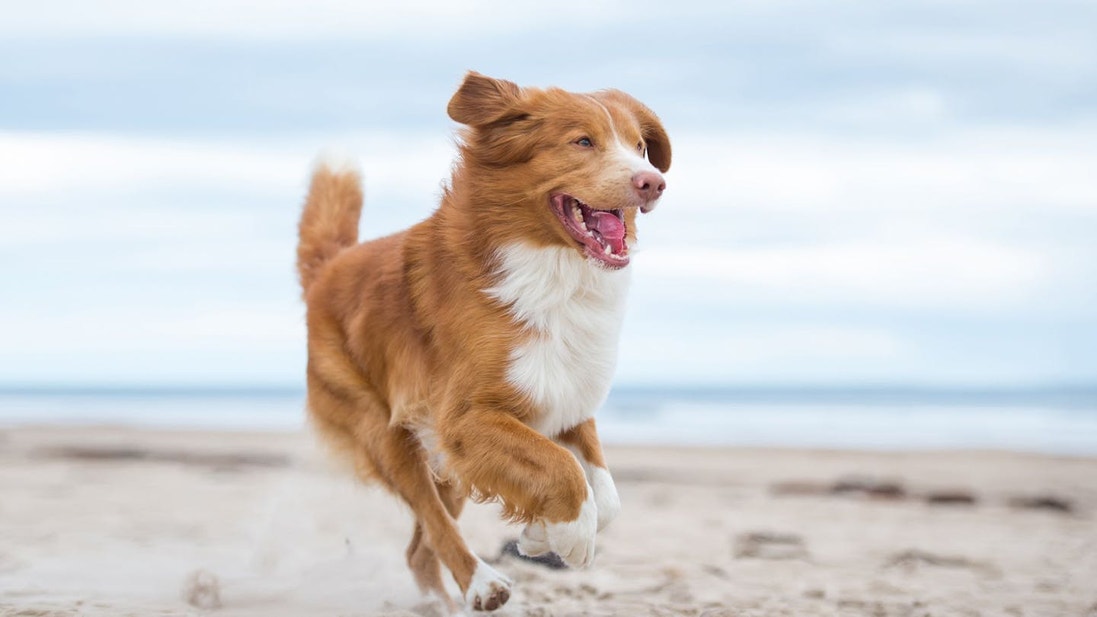
Critical nutrients dogs need for healthy hair and skin
Written By: Russ Kelley, M.S. | Eukanuba™ & Royal Canin Pet Health & Nutrition Center
Humans can use topical supplements like moisturising lotion or hair conditioner for good health, but a dog doesn’t have that luxury. The condition of a dog’s hair and skin comes from proper feeding, and it’s far more important than just making them look good. Healthy hair and skin protect them from the environment.
Skin and Coat Are a Dog’s Largest Organs
They’re also his first line of defense against illness. Hair and skin help protect a dog’s immune systems from allowing infection to be introduced to their bodies. Infection can enter the dog’s system through skin cuts, tears and wounds, which is why the topic is so important.
Skin Can Regenerate Itself
Skin cells are constantly replicated as epithelial cells are lost every day. Some are lost from normal cellular reproduction while others are removed when dogs run through fields and swim in rivers. The replacement of these cells requires a tremendous amount of protein and amino acids, so much so that from a requirement standpoint, the skin uses more protein than any other system including muscles. If you’ve ever noticed the cracked skin on a Lab that comes from repetitive water retrieves or the dry skin on a hard-working pointer then you know what I’m talking about. Those skin ailments come from the wetting and drying process just as they come from exposure to harsh terrain. Proper feeding can help resolve the problem, especially those foods that are rich in fatty acids. Those fatty acids should be balanced with protein as that combination helps keep their skin soft and smooth. Soft, supple skin doesn’t tear easily, and it keeps them protected.
The Importance of Minerals
In addition to protein and fat, minerals are important for maintaining healthy hair. Zinc, selenium and vitamin E contribute to elasticity which reduces the impact of cuts, scratches, scrapes and punctures. Omega-3 fatty acids are what adds the sheen to a dog’s coat and help keep hair from breaking and exposing the skin to cuts. Open wounds invite disease. If your dog has dull hair then there likely is a nutritional gap that should be corrected. To select the right dog food, talk with your veterinarian.
Skin is a Measure of Health
But there is a direct correlation between a dog’s skin and its overall health, too. Epithelial cells found in the skin are also found in the GI tract. If nutrition is creating good, healthy skin then the GI tract is likely to be healthy as well. That’s important for processing food to refuel all of the animal’s systems ranging from muscular to circulatory and respiratory.
Handlers usually notice a dog’s performance through its athleticism. Muscles, condition, and the ability to perform tasks are usually associated with their cardiovascular and muscular systems. But don’t overlook the skin and hair. If skin is cracked, dry or brittle and the hair is dull, look for a new food. A dog’s skin and coat are treated from the inside-out. A healthy dog is a happy dog, and those kinds of pups love to work hard for their handlers.




